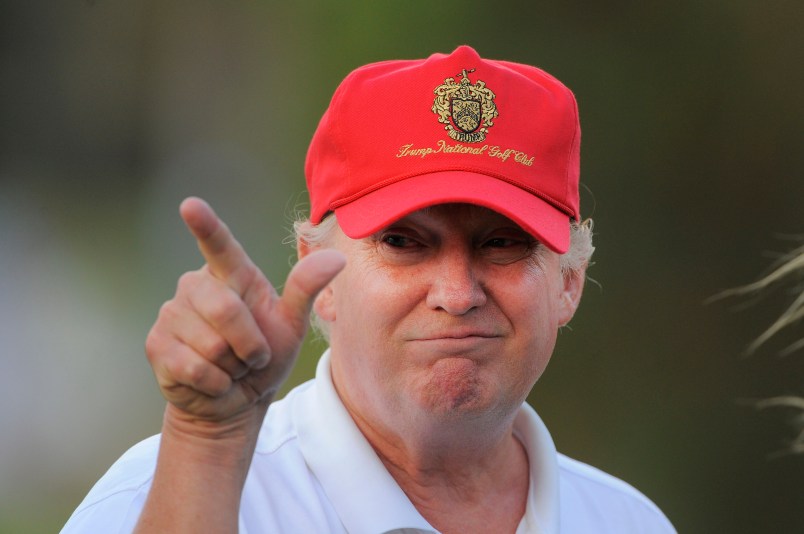If President Donald Trump is ultimately unable to implement an executive order temporarily banning immigrants from six majority-Muslim nations and refugees, he will have his own words to blame.
Two federal judges who on Wednesday blocked a newer, narrower version of the administration’s travel ban hours before it was to take effect cited past comments made by Trump and his close allies to claim that the order was primarily motivated by religious bias. And in his response to this block, Trump may have provided even more ammunition to appeals judges questioning his motives.
U.S. District Judge Derrick Watson in Hawaii and Judge Theodore Chuang in Maryland pointed to remarks the Trump team made during the 2016 campaign, the presidential transition and the first weeks of the Trump administration.
Three statements in particular drew Watson’s attention. One was Trump’s December 2015 press release calling for “a total and complete shutdown of Muslims entering the United States.” Another was Trump surrogate Rudy Giuliani explaining in January on Fox News that Trump called him up asking how he could enact a “Muslim ban” “legally.” The third was Trump’s senior adviser, Stephen Miller, saying just last month that the revised version of the immgration executive order will still “have the same basic policy outcome” as the first.
Collectively, these comments undercut the Trump administration’s argument that it is a matter of urgent national security to impose a 90-day ban on citizens from Iran, Afghanistan, Yemen, Libya, Somalia and Sudan immigrating to the U.S. and to suspend the nation’s refugee program for 120 days.
“Any reasonable, objective observer would conclude…that the stated secular purpose of the Executive Order is, at the very least, ‘secondary to a religious objective’ of temporarily suspending the entry of Muslims,” Watson wrote of the ban.
Shortly after Watson’s decision came down, Chuang similarly ruled that the likely purpose of the order was “the effectuation of the proposed Muslim ban” that Trump had called for during the 2016 campaign.
The Trump administration’s national security argument was further undermined by the timing of the ban’s rollout. After his first executive order on immigration, which explicitly prioritized refugees from religious minorities and also banned travelers from Iraq, was blocked in January, Trump cautioned that “bad dudes” would come flooding into the country as a result.
Yet the White House postponed Trump’s signing of the revised ban. Originally scheduled to occur the day after the President’s Feb. 28 speech before Congress, the White House pushed the signing back because officials were loath to step on positive reviews of Trump’s address. The order was not scheduled to take effect for another 10 days after it was signed on March 6.
The Trump administration is expected to appeal the latest rulings, which the Justice Department called “flawed both in reasoning and in scope.”
But the President didn’t appear to do government lawyers any favors during a Wednesday night rally in Nashville, Tennessee. Blasting Watson’s decision as “political,” he said he never wanted to issue this “watered-down version of the first” order anyway.
“I think we ought to go back to the first one and go all the way, which is what I wanted to do in the first place,” Trump told the crowd.
Read Watson’s full decision below:







So that will be opening line in federal court in next lawsuit.
And just because it never, ever, ever gets old:
Jesus, Trump is such a dumbfuck. He’s truly an idiot.
Trump is like any criminal defense lawyer’s worst client. The only thing that will make him shut up and stop tweeting is duct tape and broken fingers… and at least the average defendant says 99.99% of his admissions out of earshot of a public forum. On the other hand, all of Trump’s admissions against interest are witnessed by millions and recorded on video.
dear gawwwd make it stop
